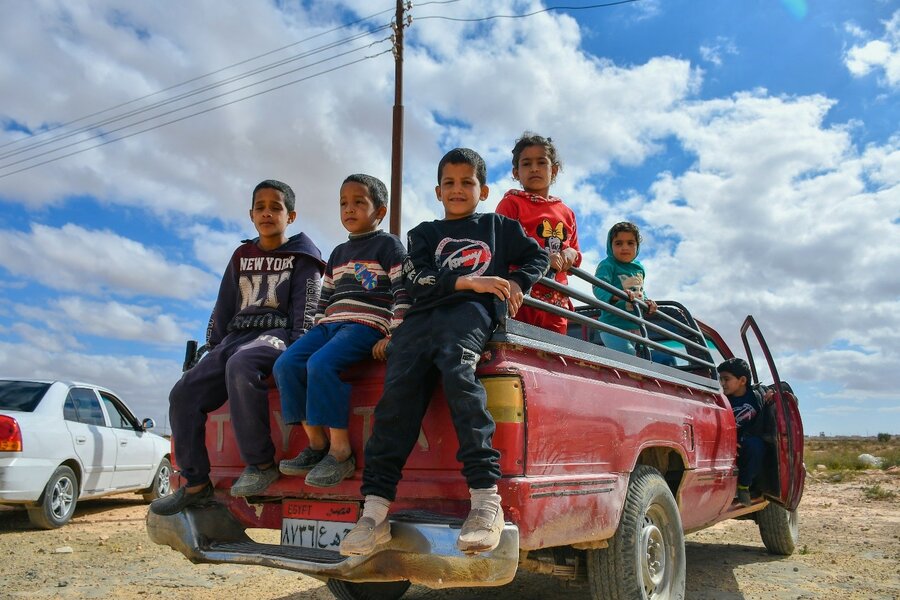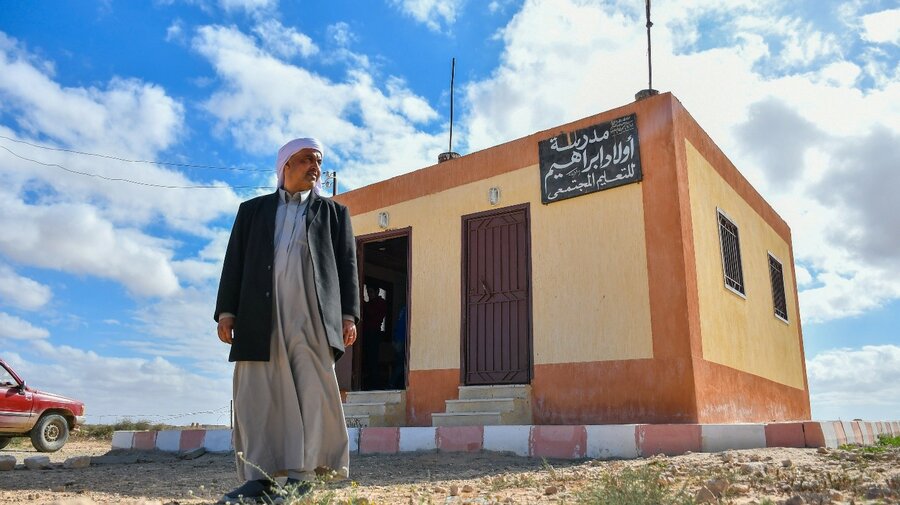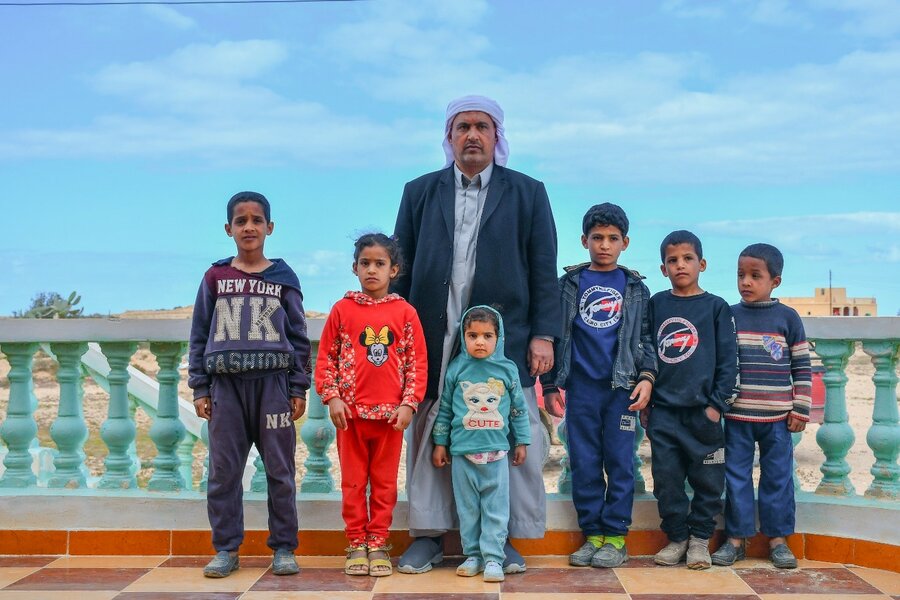Egypt: How families in a remote village built a community school

Mahmoud Ibrahim is one of the 300 people living in the desert village of Mogama’a Ibrahim — a remote community in Egypt’s north-western coastal governorate of Marsa Matrouh. The town, inhabited solely by members of the Ibrahim family, lacks electricity and running water. People rely on collected rainwater for their day-to-day needs.
There are no paved roads to connect the town with the main city centre; the only way to get there is through dirt roads. Families of Mogama’a Ibrahim live off sheep and camel herding and wages from random jobs here and there.
Every Friday, they share the cost of renting a pickup truck that takes them all to the market to buy a week’s worth of food and other supplies.
A conservative Bedouin community, people of Mogama’a Ibrahim refused to send their daughters to schools that were far away — the closest public school is 7km from the village — and kept them at home instead.
Mahmoud’s firstborn, Hoda, was among the girls that never got to go to school. But it wasn’t only girls that were deprived of their right to an education. Many families struggled with finding the resources to pay for the rented pickup truck to take their boys to school and as a result many of them never got to learn either.
Mahmoud says: “I wanted to educate my daughter and couldn’t, that’s when I started to think of a solution to a problem that not only concerns me but many other families around us.”
Eight years ago, he rolled up his sleeves and started building a community school in his hometown with his bare hands.

Even though educating girls was never a priority for the families of Mogama’a Ibrahim, Mahmoud managed to convince his grandfather to donate a piece of land he owned to build a one-classroom school to serve their hometown.
And so, with the help of neighbours, the ‘Awlad Ibrahim Community School’ (Children of Ibrahim) was established in the heart of the community.
A community school is a multi-grade, one-classroom place located in extremely rural areas where no public schools are available within a 2km radius. These schools provide a rare learning opportunity to children who’ve dropped out or may have missed the enrolment age of the public schools, as well as many others who cannot afford to pay for commuting.
Today, four of Mahmoud’s children — two girls and two boys — are attending the community school where the World Food Programme (WFP) is implementing a school feeding initiative. Every day a child attends, they receive a fortified date-bar snack. This covers 25 percent of their daily nutritional needs.
WFP assists 26,000 children with school feeding in Egypt, and a total of 400,000 people nationally out of a population of 101.5 million people, nearly 16 percent of whom have poor access to food.

Mahmoud receives US$46 cash assistance a month provided his children maintain an 80 percent attendance rate — this helps him put food on the table for the family.
Since the start of the pandemic, making do with the minimal income Mahmoud brings in has meant providing less food for his family and continually being in debt with the local food shop. Now Mahmoud uses the cash assistance to buy a month’s worth of basic food items such as pasta, rice, flour, tomato sauce and oil.
Awlad Ibrahim Community School, with more than 20 students currently enrolled, recently received a facelift thanks to WFP — a new roof to replace the leaky old one.
Mahmoud says: “Educations is a vital element in our lives, it’s like the air we breathe, and I have big dreams for my children to one day become doctors, engineers and teachers.”
